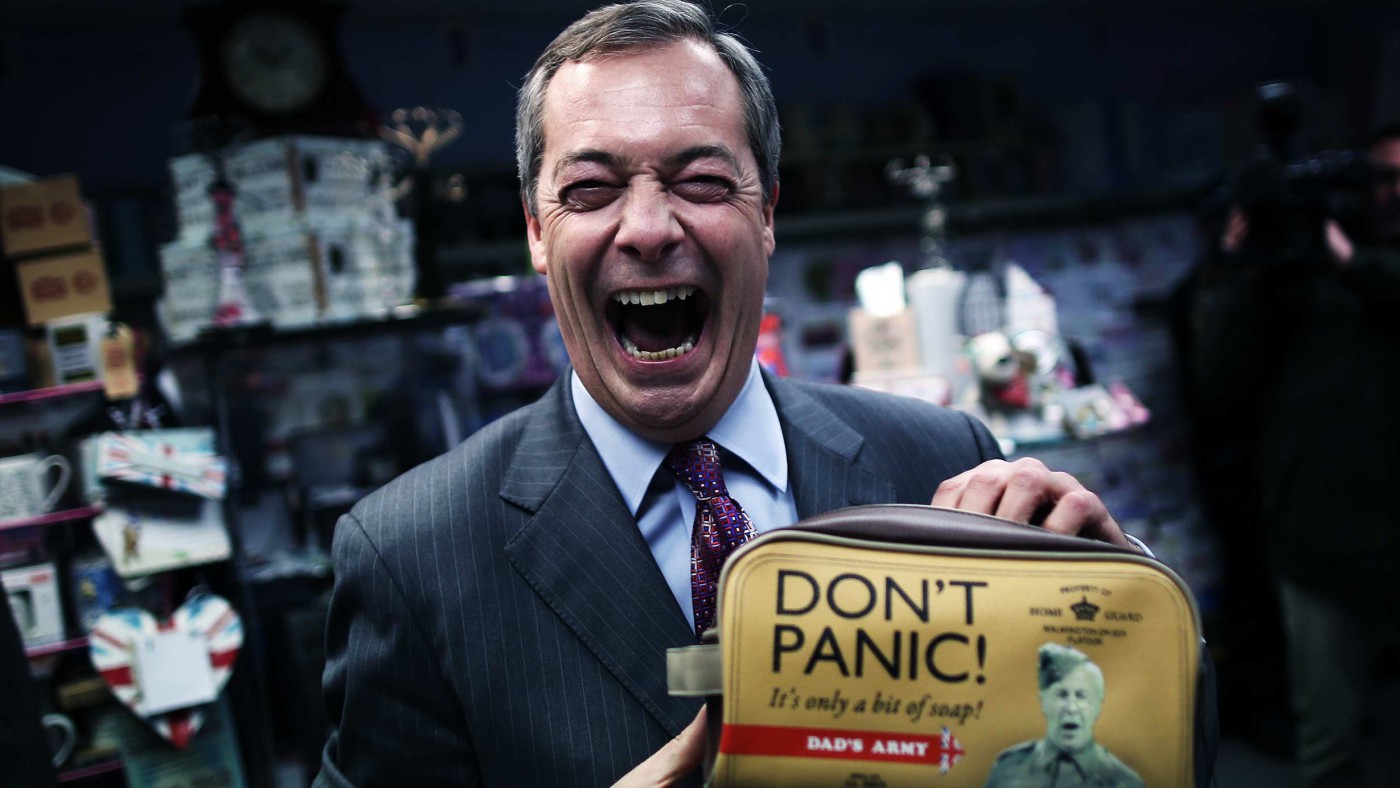Tony Blair has given us a preview of how EU supporters intend to fight the referendum campaign. They will avoid awkward data: the fact, for example, that the British exports to the EU are in precipitate decline, that our net budget contribution has quadrupled in five years, that the most successful countries in Europe are Switzerland and Norway, or that every continent on the planet is experiencing economic growth except Europe. Instead, they will present the poll as a Kulturkampf – a struggle between broad-minded cosmopolitans and chauvinist Blimps.
If you want trade and collaboration with our neighbours, they will imply, you must vote to stay in. The actual Eurosceptic case – that free trade with the EU doesn’t depend on political union, and that a maritime nation should raise its eyes to more distant horizons – won’t be refuted; it’ll simply be ignored.
Now ask yourself this. If the pro-EU side could write their opponents’ script, what would it say? My guess is that they would want Eurosceptics to adopt a relentlessly cynical and bitter tone. They would want us to complain about foreigners bringing diseases into the country, about too many languages being heard on our streets, about religious minorities being a potential fifth column.
The reason they would want us to do these things is that they know that pessimism rarely wins. Even when people agree with the individual policies being suggested – and the Australia-style points-based immigration system that UKIP proposes is eminently sensible – they are repelled by a gloomy pitch.
Think of last year’s referendum in Scotland. The SNP had splashed out on a single session with a top US political consultant. He told the assembled campaigners that the more optimistic candidate generally wins, and made them do an exercise where they had to hand over a coin every time they said something negative. Alex Salmond plainly took the lesson to heart. He swallowed up everything that Unionists threw at him in a supernova of cheeriness. The “No” campaign, by contrast, made the elementary mistake of focusing on what might go wrong. Would Scotland keep the pound? Would companies relocate? Could it stay in the EU? In consequence, the “Yes” side steadily closed the gap, moving from 20 points behind to near parity. Only in the final week of the campaign, spooked by the opinion polls, did Unionists make the argument they should have made all along, namely that Scotland was doing pretty well out of the existing arrangement, thanks very much.
I’m sure you can see where I’m going with this. To carry a referendum on leaving the EU, we Eurosceptics need to offer a better alternative. We need to make our case in warm and positive language – and, above all, in economic language.
That’s not what is currently happening. If I say the word “Eurosceptic”, what’s the first image that comes into your mind? My guess is that it’s an angry Ukipper talking about immigration.
If we go into the referendum with one side talking about trade and investment while the other is talking about Romanians and Bulgarians, who is going to sound the more serious? Actually, we already know the answer to that question: we can see it in the inverse correlation in the polls between support for UKIP and support for Brexit.
I know we’re in an election campaign. Still, let me appeal to those UKIP supporters who care about national independence, those who truly mean it when they talk of putting country before party. Please remember that what you say now isn’t magically erased on polling day; it will be quoted back at you when the referendum campaign begins in earnest. There is no point in galvanising the already committed if, in the process, you alienate the undecided. Recall what it was that brought you into politics in the first place.


